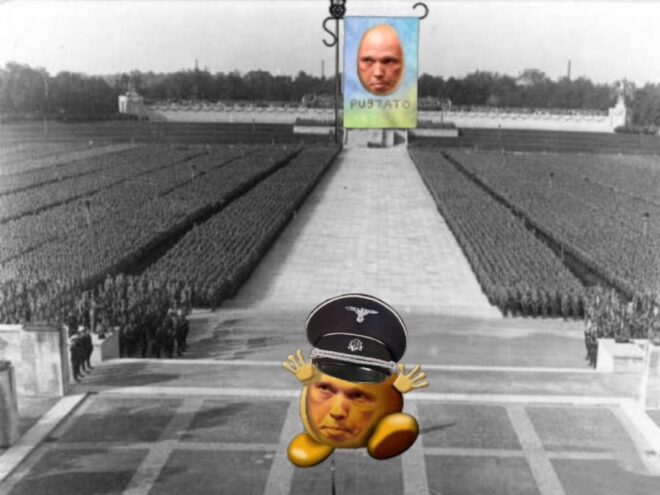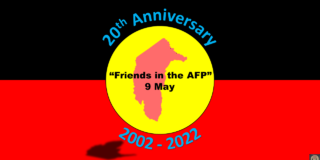
Introduction
Peter Dutton, the current leader of the opposition in the Australian Parliament and a prominent figure in Australian politics, has faced numerous allegations of racism throughout his political career. These allegations span from his time in various ministerial roles to his current position as the leader of the Liberal Party. This paper aims to explore these allegations, examining the contexts in which they have arisen, the public and media responses, and the broader implications for Australian political discourse on race and identity.
Historical Context and Specific Incidents
Early Career and Refugee Policy
Dutton’s political career has been significantly shaped by his involvement in immigration and border protection policies. His tenure as Minister for Immigration and Border Protection under the Abbott and Turnbull governments was particularly contentious. Critics have accused him of employing “dog-whistle” politics, a term used to describe political messaging that indirectly conveys messages to a particular group while remaining ostensibly neutral.
One notable incident occurred in 2016 when Dutton suggested that some Lebanese Muslim immigrants might have a propensity for criminal behavior, a statement widely condemned for perpetuating racial stereotypes (ABC News, 2016). His handling of asylum seeker policies, particularly the controversial “Stop the Boats” policy, has also drawn criticism for its harshness and perceived racial undertones. Such policies have led to allegations that Dutton’s rhetoric often marginalizes vulnerable groups, particularly those seeking asylum in Australia.
Indigenous Affairs
Dutton’s approach to Indigenous issues has further fueled allegations of racism. His opposition to the display of Aboriginal and Torres Strait Islander flags alongside the Australian flag during official events has been interpreted by some as a lack of acknowledgment or respect for Indigenous sovereignty and culture. His comments regarding child abuse in Indigenous communities have also been contentious. Critics argue that his framing of the issue often overlooks systemic factors and instead promotes a narrative that can be seen as blaming Indigenous communities for broader societal problems.
Furthermore, Dutton’s stance against the Indigenous Voice to Parliament, a proposed advisory body aimed at enhancing Indigenous representation in political decision-making, has raised concerns about his commitment to reconciliation and recognition of Indigenous rights. His dismissal of the Voice as a “waste of time” has been perceived as indicative of a broader reluctance to engage with Indigenous issues in a meaningful way.
Dutton’s arguments against the Voice outlined
- Divisiveness: He repeatedly claimed that the Voice would divide the nation rather than unite it, suggesting that recognising Indigenous Australians in this manner was inherently segregative.
- Lack of Practical Outcomes: Dutton argued that the Voice would not lead to tangible improvements in the lives of Indigenous Australians, focusing instead on what he described as “Canberra bureaucracy.”
- Constitutional Risk: He warned that including the Voice in the Constitution would be the most significant and risky alteration in history, potentially leading to unforeseen legal and governance issues.
- Misinformation: There were accusations that Dutton spread misinformation or exaggerated claims about the Voice’s implications, such as suggesting it could act as a “third chamber” of parliament, which was not supported by the proposed constitutional amendment.
Impact and Public Reaction
- Political Impact: Dutton’s strategy had a profound effect on the referendum outcome, with the No vote prevailing. His stance influenced both public opinion and the voting behaviour of traditional Liberal supporters, as well as those in more conservative states.
- Indigenous Community Response: Indigenous leaders and advocates criticised Dutton’s approach, accusing him of ignoring Indigenous voices and needs. They argued that his opposition was politically motivated, aimed at electoral advantage rather than genuine concern for Indigenous policy.
- Long-term Reconciliation: Critics feared that the aggressive opposition might set back reconciliation efforts, as it could deepen mistrust between Indigenous communities and the political establishment.
Post-Referendum Strategy
After the referendum’s defeat, Dutton initially proposed a second referendum for symbolic Indigenous recognition without a Voice but later walked back this commitment, indicating a shift in strategy or acknowledgment of public referendum fatigue. This U-turn was perceived by some as an admission that his earlier promises were more political rhetoric than policy commitment.
Recent Allegations
In recent years, Dutton has faced additional allegations regarding his comments on cultural diversity roles in the public service. Critics argue that his statements undermine efforts toward inclusivity and understanding, suggesting that such roles are unnecessary or even divisive. Legal actions have also been initiated against him by the Australian Human Rights Commission, accusing him of racial vilification and discrimination, particularly in relation to his public statements on the Israel-Gaza conflict and his characterisation of certain communities as a “threat” to national security.
Legal Framework and Accusations
The legal actions against Dutton are primarily grounded in the Racial Discrimination Act 1975, specifically Section 18C, which makes it unlawful to offend, insult, humiliate, or intimidate another person or group based on race, color, or national or ethnic origin. The complaints lodged with the AHRC allege that Dutton’s rhetoric has:
- Vilified Palestinian-Australians, Arab-Australians, and Muslim-Australians by portraying them as less than human or lacking human qualities.
- Conflated Jewish identity with the actions of the Israeli state, thereby endangering Jewish Australians by increasing antisemitism.
- Characterised Palestinians from Gaza as a security risk, which is seen as discriminatory and inciting racial hatred, especially in the context of his opposition to granting humanitarian visas to Gazans.
Evidence and Public Statements
Dutton’s statements have been scrutinised in multiple instances:
- August 2024: He claimed that granting nearly 3,000 tourist visas to individuals from Gaza jeopardised national security, labelling Gaza a “terrorist-controlled” zone.
- Chanukah message in December 2024: He criticised the International Criminal Court (ICC) for its actions regarding Israel, which was seen as encouraging Australia to disregard international law.
Public speeches and media appearances
Dutton has made statements where he has consistently supported Israel’s military actions without acknowledging the disproportionate impact on civilians in Gaza.
These statements are cited as evidence of racial vilification, suggesting a pattern of behaviour that contravenes Australian law on racial discrimination.
Legal Process and Potential Outcomes
The complaints have been accepted by the AHRC, which aims to resolve these matters through conciliation. If conciliation fails, the complainants can seek further legal action in the Federal Court. Outcomes could range from public apologies and rectifications to financial compensation for the affected communities.
Political and Social Implications
- Political Fallout: These legal actions place Dutton’s leadership under scrutiny, potentially affecting public perception and his political standing. His approach to racial and religious issues could influence voter bases and the broader political landscape.
- Social Cohesion: The controversy highlights the delicate balance of discussing national security, foreign policy, and community rights without fostering discrimination or division.
- Legal Precedent: This case could set a precedent for how public figures are held accountable for their statements, particularly those with potential to incite racial hatred or discrimination.
Public and Media Perception
Media Coverage
The Australian media landscape has been polarised in its coverage of Dutton. Some outlets have accused him of employing racist rhetoric, while others have defended him, arguing that his comments are either misconstrued or taken out of context. For example, Dutton’s supporters often frame his immigration policies as necessary for national security and cultural cohesion, while detractors highlight the racial implications of his statements.
The mainstream media’s hesitance to engage with some of these allegations directly has been noted, particularly in instances where legal complaints have been filed. This reluctance may reflect broader societal divisions regarding race and immigration, as well as the complexities of reporting on sensitive political issues.
Public Sentiment
Public opinion on Dutton’s comments and policies is sharply divided. Social media platforms, such as X (formerly Twitter), reflect this division, with some users praising his approach to immigration and others condemning it as racist. Supporters argue that Dutton’s policies address legitimate concerns about immigration and cultural integration, while critics contend that his rhetoric perpetuates fear and division.
This division often mirrors broader societal debates on multiculturalism, immigration, and Indigenous rights in Australia. As Australia grapples with its multicultural identity, Dutton’s comments and policies serve as flashpoints for these discussions.
Legal and Political Ramifications
Legal Actions
Legal actions against Dutton under the Racial Discrimination Act highlight the formal challenges to his rhetoric. The Australian Human Rights Commission’s investigation into his statements reflects a significant pushback against what some perceive as his racially charged political strategy. Although these cases are yet to conclude, they underscore the seriousness of the allegations and the potential for legal ramifications.
Political Impact
Politically, these allegations have both bolstered and challenged Dutton’s image. For some voters, Dutton’s stance on immigration and national security resonates with their concerns, galvanising support among those who feel their values and priorities are being addressed. Conversely, these same allegations have alienated others who view his leadership as divisive and racially insensitive.
The dual nature of Dutton’s political impact illustrates the complexities of navigating contemporary Australian politics, where issues of race and identity are increasingly prominent. As Dutton continues to lead the opposition, the consequences of these allegations will likely shape his political future and that of the Liberal Party.
Analysis
The allegations of racism against Peter Dutton are not merely personal attacks but are part of a larger discourse on how race, identity, and politics intersect in contemporary Australia. His policies and public statements resonate with segments of the population concerned with national identity and security, yet they also provoke significant criticism for potentially fostering an environment of racial division.
Dutton’s case exemplifies the complexity of race in Australian political life, where historical attitudes toward immigration, Indigenous rights, and multiculturalism continue to shape policy and public opinion. His approach might be seen by some as a continuation of Australia’s often fraught relationship with its multicultural identity, where the balance between cultural integration and the preservation of national identity is continually debated.
Conclusion
The allegations against Peter Dutton are emblematic of broader societal tensions regarding race, identity, and political leadership in Australia. While his defenders might argue that his policies are pragmatic and necessary for national security, critics see a pattern of racial insensitivity or worse. This dichotomy not only affects Dutton’s political career but also reflects on the state of racial discourse in Australian politics.
As Australia moves forward, how it navigates these allegations will be crucial in defining its national identity and its approach to multiculturalism and racial equity. The ongoing discourse surrounding Dutton’s comments and policies will likely continue to influence public opinion and political dynamics in the country, highlighting the importance of addressing issues of race and identity in a thoughtful and inclusive manner.
References
• ABC News. (2016). “Peter Dutton’s comments on Lebanese Muslims spark outrage.” Retrieved from [ABC News](https://www.abc.net.au/news).
• The Guardian. (2022). “Peter Dutton dismisses Indigenous Voice to Parliament as a waste of time.” Retrieved from [The Guardian](https://www.theguardian.com).

